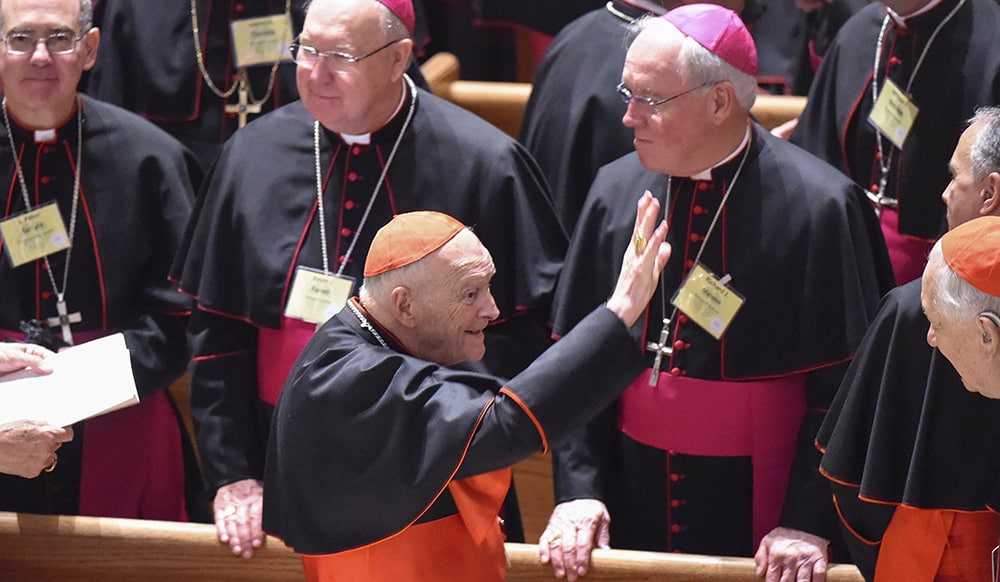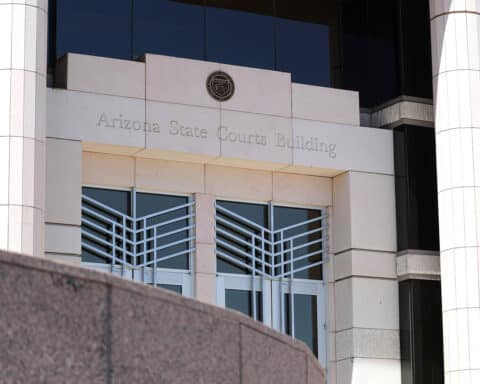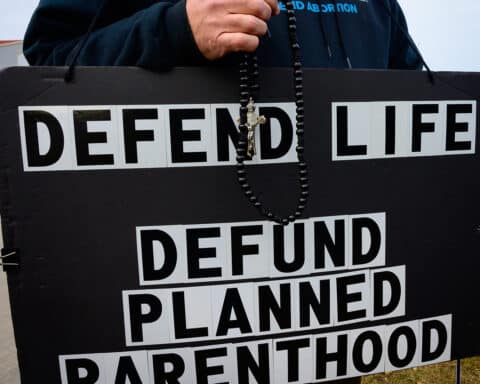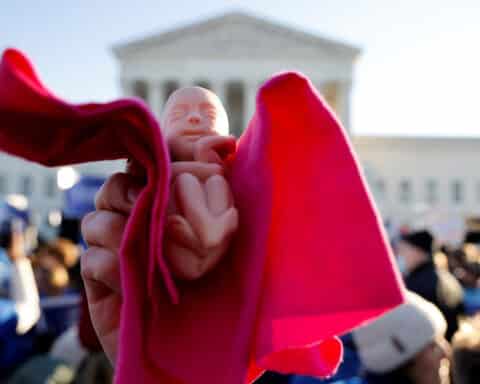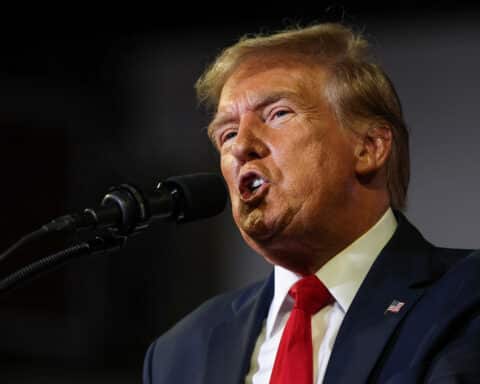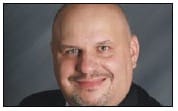
In 2004, many Catholics were insisting that Catholic presidential candidate John Kerry be excommunicated — or at least publicly barred from receiving the Eucharist because of his passionate advocacy of abortion.
Everyone knows that McCarrick was the cardinal-archbishop of Washington at that time, but what fewer may recall is that his brother bishops appointed him to serve as the head of the U.S. Conference of Catholic Bishops’ Task Force on Catholic Participation in Public Life. In this role, McCarrick was given a lead role in plotting the course the Church should follow in responding to Catholic politicians who actively undermined Church teaching, specifically on life issues. In an attempt to address this serious hurdle to his candidacy, Kerry scheduled a sit-down with McCarrick.
In a piece for the Washington Post, Robert Novak wrote about that meeting, saying, “Kerry likely could not have been more pleased by the interview. … While asserting abortion ‘may be primary,’ McCarrick said that ‘people who are with us on one issue’ may be ‘against us on many other issues.’ He concluded: ‘All these things will have to be weighed very carefully.’ Intentionally or not, he was following the lead of liberal, pro-choice Democrats and providing cover for Kerry with traditional Catholics. McCarrick is so respected and well-liked that not only priests but prominent laymen do not want to criticize him.”
Readers will note that the language McCarrick developed to support Kerry is virtually the same as that used by those who have praised President-elect Joe Biden’s Catholic faith despite his radical pro-abortion agenda. That isn’t by accident. McCarrick wrote the script.
For reasons that are clear in hindsight, McCarrick advocated an approach to faith that permitted public figures to do as they pleased in their personal or professional life as long as they engaged in visible pious practices. McCarrick articulated a path by which one could be recognized as a faithful Catholic while simultaneously undermining the Catholic vision of life and love. For almost two decades, Church leaders have walked what is, essentially, a gnostic path of pastoral practice that separates religious devotion from real life.
As is now clear, McCarrick was able to get away with all this, not only because his approach allowed his brother bishops to avoid a direct culture clash, but also because he distributed about $600,000 in “gifts” to well-placed figures in the Church who allowed him to both perpetrate his abuses and advance his agenda.
McCarrick’s influence in this arena cannot be overstated. In 2004, there was a very real chance that Catholic politicians such as Kerry and Biden could be denied Communion or even excommunicated. McCarrick found a way to torpedo this option once and for all and, apparently, did so solely on his authority. In fact, in the piece cited above, Novak reported that several bishops privately accused McCarrick of disregarding the counsel Pope Benedict XVI had given him to come down on the side of barring pro-abort Catholic politicians from Communion.
Simply put, McCarrick is the architect of what the Church now treats as the normative “pastoral” approach to politicians such as Biden who attend Mass in the morning and spend the rest of their day working to expand abortion access up to birth, persecuting nuns for failing to offer contraception coverage, undermining adoptive children’s rights to be raised by both a mother and a father, attacking Catholic ministries for failing to be sufficiently inclusive, undermining conscience rights and seeking to redefine the broad freedom of religion as merely the narrow freedom to worship.
However positively one might feel about his politics or his personality, Biden’s de facto anointing as “First Catholic” in the U.S., represents the triumph of McCarrick Catholicism — a strain of faith that teaches that as long as one goes through the motions of devotion and reductively defines “salvation” as admission to the middle class, one need not conform one’s actual mind to Christ or his Church.
After an obscenely long wait, the McCarrick report finally was released. That’s good. But I respectfully suggest that it isn’t enough to decry McCarrick’s personal crimes. The gnostic ideology that allowed him to justify his personal offenses is the same ideology that informed his approach to faith and pastoral practice.
Thankfully, Church leaders have a new opportunity to reject the pernicious legacy of McCarrick Catholicism. In the most recent USCCB gathering, Archbishop Allen H. Vigneron of Detroit, vice president of the USCCB, was appointed to a new working group that has been charged with identifying the best ways to work with a self-proclaimed devout Catholic politician who, nonetheless, appears committed to undermining the very foundations of Catholic social teaching. We must pray for the task force’s ability to engage this challenge in a new manner that is both pastoral and robust.
When public figures of any type actively proclaim their Catholic faith as the driving force of their life and decisions, they should be required to offer more evidence than the ability to cherry-pick quotes from a popular hymn. Their life and career should demonstrate their ability to think with the mind of the Church. If not, like anyone else, that person should be compellingly called to repent, not out of a desire to punish them, but to work for their greater spiritual good. Should they reject this call, they should encounter robust pastoral interventions, again, not to punish them, but to prophetically challenge them to genuine conversion. To do less is to fail to work for the ultimate good of the public figure in question and to promote the loss of faith among the faithful.
To hold up Biden’s approach to faith as something to be admired is to be an unwitting promoter of a gnostic gospel that separates spiritual devotion from the call to personal conversion, which is what McCarrick’s life was all about. Jesus said, “Not everyone who says to me, ‘Lord, Lord,’ will enter the kingdom of heaven, but only the one who does the will of my Father in heaven” (Mt 7:21).
With the creation of this new task force, we finally have the opportunity to reorient ourselves away from the false gospel of Uncle Ted and point the Church’s pastoral practices back to the one, true Gospel of Jesus Christ. Let us pray that our leaders will take full advantage of this opportunity.
Gregory Popcak is the executive director of the Pastoral Solutions Institute.

